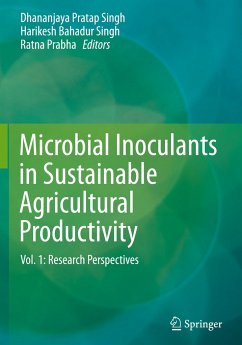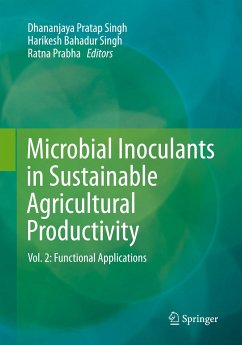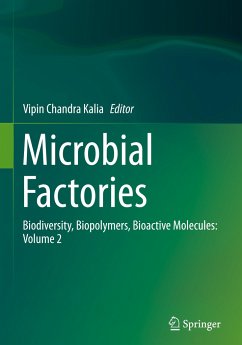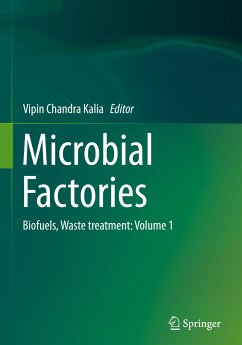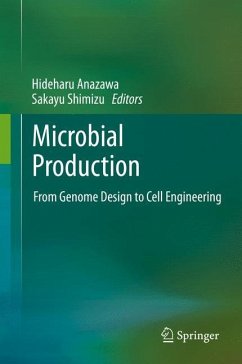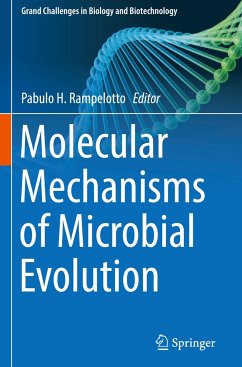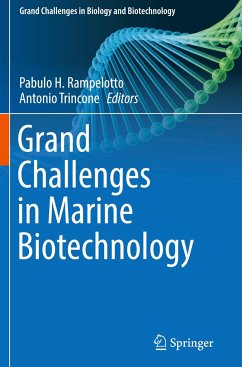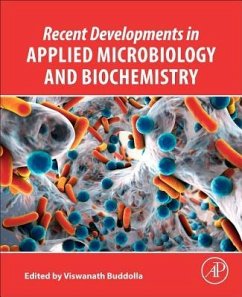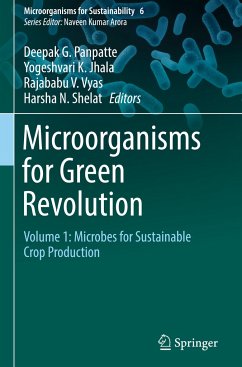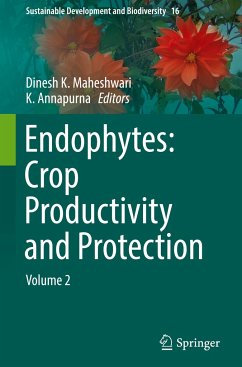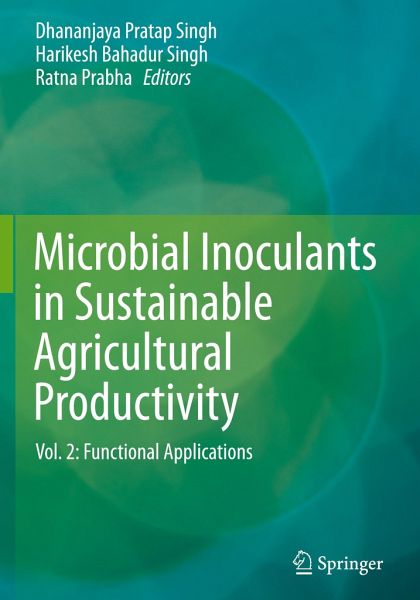
Microbial Inoculants in Sustainable Agricultural Productivity
Vol. 2: Functional Applications
Herausgegeben: Singh, Dhananjaya Pratap; Singh, Harikesh Bahadur; Prabha, Ratna

PAYBACK Punkte
83 °P sammeln!
The performance of crops in the soil largely depends on the physico-chemical components of the soil, which regulate the availability of nutrients as well as abiotic and biotic stresses. Microbes are the integral component of any agricultural soil, playing a vital role in regulating the bioavailability of nutrients, the tolerance to abiotic and biotic stresses and management of seed-borneand soil-borne plant diseases. The second volume of the book Microbial Inoculants in Sustainable Agricultural Productivity - Functional Applications reflects the pioneering efforts of eminent researchers to exp...
The performance of crops in the soil largely depends on the physico-chemical components of the soil, which regulate the availability of nutrients as well as abiotic and biotic stresses. Microbes are the integral component of any agricultural soil, playing a vital role in regulating the bioavailability of nutrients, the tolerance to abiotic and biotic stresses and management of seed-borneand soil-borne plant diseases. The second volume of the book Microbial Inoculants in Sustainable Agricultural Productivity - Functional Applications reflects the pioneering efforts of eminent researchers to explore the functions of promising microbes as microbial inoculants, establish inoculants for field applications and promote corresponding knowledge among farming communities.
In this volume, readers will find dedicated chapters on the role of microbes as biofertilizers and biopesticides in the improvement of crop plants, managing soil fertility and plant health,enhancing the efficiency of soil nutrients and establishing systemic phytopathogen resistance in plants, as well as managing various kinds of plant stress by applying microbial inoculants. The impact of microbial inoculants on the remediation of heavy metals, soil carbon sequestration, function of rhizosphere microbial communities and remediation of heavy metal contaminated agricultural soils is also covered in great detail.
In this Volume, a major focus is on the approaches, strategies, advances and technologies used to develop suitable and sustainable delivery systems for microbial inoculants in field applications. Subsequent chapters investigate the role of nanomaterials in agriculture and the nanoparticle-mediated biocontrol of nematodes. An overview of the challenges facing the regulation and registration of biopesticides in India rounds out the coverage.
In this volume, readers will find dedicated chapters on the role of microbes as biofertilizers and biopesticides in the improvement of crop plants, managing soil fertility and plant health,enhancing the efficiency of soil nutrients and establishing systemic phytopathogen resistance in plants, as well as managing various kinds of plant stress by applying microbial inoculants. The impact of microbial inoculants on the remediation of heavy metals, soil carbon sequestration, function of rhizosphere microbial communities and remediation of heavy metal contaminated agricultural soils is also covered in great detail.
In this Volume, a major focus is on the approaches, strategies, advances and technologies used to develop suitable and sustainable delivery systems for microbial inoculants in field applications. Subsequent chapters investigate the role of nanomaterials in agriculture and the nanoparticle-mediated biocontrol of nematodes. An overview of the challenges facing the regulation and registration of biopesticides in India rounds out the coverage.



